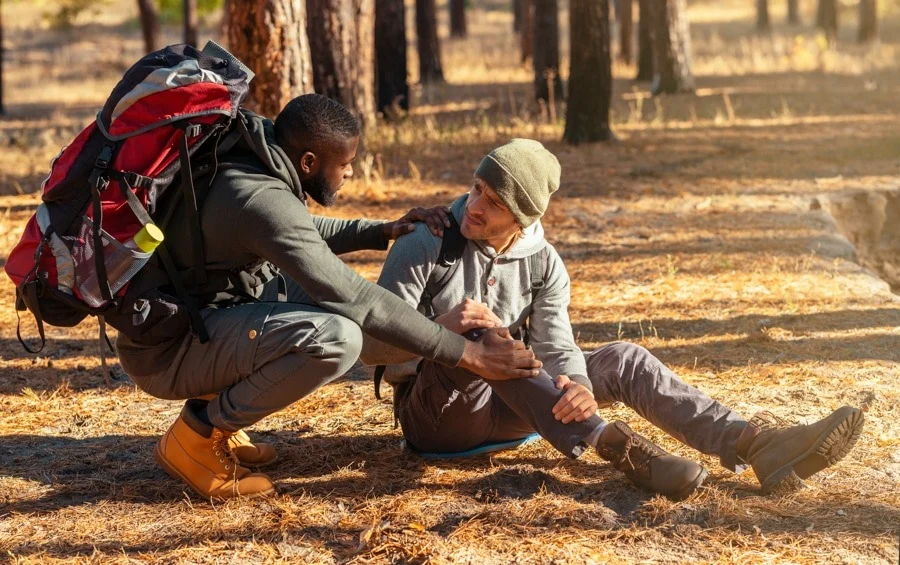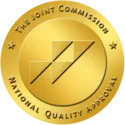Dealing with a friend’s alcohol addiction is a challenging and emotional experience. It’s not just about helping them overcome their dependency; it’s also about understanding the nuances of addiction and providing unwavering support throughout their recovery journey.
Whether they’re in denial, actively seeking treatment, or navigating life post-rehab, your role as a friend can make a significant difference. Our substance abuse treatment programs in Idaho can help you or a loved one struggling with alcohol addiction.
Understanding Alcohol Addiction
Alcohol addiction, also known as alcohol use disorder (AUD), is a chronic disease characterized by an inability to control or stop drinking despite harmful consequences. It affects both the mind and body, and its impacts extend beyond the individual to relationships, work, and overall well-being. Understanding alcohol addiction requires recognizing the physical, psychological, and social aspects of the condition.
Alcohol addiction occurs when drinking becomes compulsive and uncontrollable, often leading to negative consequences. It ranges from mild to severe and is marked by physical dependence and psychological cravings. People with alcohol addiction will continue to drink even when it interferes with their daily lives.
Understanding alcohol addiction involves recognizing it as a complex disease influenced by a combination of genetic, psychological, and environmental factors. Its impacts are wide-ranging, affecting not only the individual but their relationships, health, and overall quality of life. Our addiction treatment in Nampa, Idaho uses a multi-faceted approach, including medical care, therapy, and ongoing support to help people achieve and maintain sobriety.
Signs of Alcohol Addiction
Recognizing the signs of alcohol addiction is the first step in helping your friend. It’s crucial to distinguish between occasional drinking and a more serious problem. Look for these common signs:
- Increased Tolerance: They need more alcohol to feel the same effects.
- Withdrawal Symptoms: Physical symptoms like shakiness, sweating, and anxiety when not drinking.
- Neglecting Responsibilities: Missing work or school, neglecting family obligations, or failing to meet social commitments.
- Loss of Control: Drinking more than intended or being unable to stop once they start.
- Preoccupation with Drinking: Planning activities around alcohol, constantly thinking about their next drink, and seeking out opportunities to drink.
If you notice these signs in your friend, it may be time to have a conversation about their drinking habits and how it’s affecting their life. Encourage them to consider seeking professional help or enter individual therapy to start to identify the heart of their addiction.
How to Talk to Someone in Denial About Their Alcohol Addiction

Learning how to help a friend with alcohol addiction who is in denial about their behavior can be tricky. They may not see their drinking as a problem, or they may be afraid to admit it. Here are some tips for approaching the conversation:
Find a quiet, private setting where you can talk without interruptions. Make sure your friend is sober and in a good state of mind to listen.
Use “I” statements to express your concerns without sounding accusatory. For example, “I’ve noticed that you’ve been drinking more lately, and I’m worried about you.”
Reassure your friend that you’re there for them and that you want to help. Provide information about treatment options and support groups, but avoid pushing them if they’re not ready.
It’s essential to set personal boundaries to protect your well-being. Make it clear that while you love and support them, you won’t enable their drinking. For example, you might refuse to buy them alcohol or cover up for their behavior when drunk.
How to Avoid Codependency
Avoiding codependency while supporting a friend struggling with alcoholism requires maintaining healthy boundaries, encouraging personal responsibility, and prioritizing your well-being. Codependency occurs when someone becomes overly involved in the problems of another, often enabling destructive behaviors while neglecting their own needs.
Here’s how to help a friend with alcohol addiction and avoid codependency:
Set Clear Boundaries
- Define Your Limits: Be clear with your friend about what behaviors you will not tolerate, such as them picking fights when intoxicated or covering up for their actions. Firm boundaries help prevent enabling.
- Stick to Your Boundaries: Once you establish boundaries, enforce them. Codependency often involves making exceptions for harmful behaviors. Consistency is key.
- Communicate Directly: Be honest and straightforward about how their drinking affects you and your relationship, without blaming or shaming them. Express concern without taking responsibility for their behavior.
Encourage Personal Responsibility
- Don’t Take on Their Problems: It’s easy to want to “fix” things for your friend, but it’s important that they face the consequences of their drinking. Don’t shield them from the outcomes of their actions (e.g., breakups, job loss).
- Avoid Enabling Behavior: Enabling involves doing things that make it easier for the person to continue drinking, such as providing money, covering up for their absence, or making excuses for them.
- Support, Don’t Rescue: Offer support in healthy ways, such as listening or encouraging them to seek professional help. However, resist the urge to “rescue” them by solving their problems or making decisions for them.
Prioritize Your Well-Being
- Take Care of Yourself: Focus on maintaining your physical, emotional, and mental health. Engage in activities that make you happy and fulfilled outside of your friendship. Self-care is crucial to avoid being consumed by their problems.
- Seek Your Support: Consider attending support groups like Al-Anon, which are specifically designed for the friends and family of alcoholics. Talking to others in similar situations can provide valuable perspective and coping strategies.
- Don’t Lose Your Identity: Maintain your sense of self, interests, and goals. Codependency often involves neglecting your needs to focus on the other person. Stay connected to your life outside of your relationship with the alcoholic friend.
Encourage Professional Help
- Suggest Treatment Options: Encourage your friend to seek professional help, whether through addiction therapy services near Boise, Idaho, support groups like Alcoholics Anonymous (AA), or rehabilitation programs. Offer information, but avoid pushing too hard.
- Know Your Limits: While it’s important to offer support, understand that you cannot force someone to change or seek help. Accept that their recovery is ultimately up to them.
- Let Go of Control: It’s easy to fall into the trap of believing you can control or “cure” your friend’s addiction. Accept that their behavior is out of your control, and focus on what you can manage: your responses and boundaries.
Recognize the Signs of Codependency
- Constant Focus on Their Needs: If you find yourself obsessively worrying about your friend’s drinking or feel that their well-being is more important than your own, you may be slipping into codependency.
- Neglecting Your Own Needs: Pay attention if you’re sacrificing your time, energy, or mental health to care for your friend. Healthy relationships involve mutual support, not one-sided caregiving.
- Feelings of Guilt or Responsibility: If you feel guilty for your friend’s struggles or think it’s your job to “save” them, these are signs of codependency. Understand that their addiction is not your fault.
How to Provide Support During and After Rehab

During Rehab
If your friend decides to enter rehab, your support can be invaluable. Here’s how to help a friend with alcohol addiction during rehab:
- Stay in Touch: While your friend is in rehab, stay in touch through letters, phone calls, or visits (if allowed). Show that you care and are thinking of them.
- Educate Yourself: Learn about the rehab process and what your friend is going through using rehab resources in Nampa, Idaho. This will help you understand their experience and provide better support.
- Be Patient: Recovery is a long and challenging process. Be patient with your friend and offer encouragement, even if their progress seems slow.
After Rehab
Knowing how to help a friend with alcohol addiction after rehab is crucial for their continued recovery. Here’s how you can help:
- Encourage Healthy Habits: Encourage your friend to adopt healthy habits, such as exercising, eating well, and participating in sober activities.
- Be a Listening Ear: Be there to listen and offer support when your friend needs to talk. Sometimes, just having someone to vent to can make a big difference.
- Avoid Triggers: Help your friend avoid situations that might trigger a relapse, such as parties with alcohol or old drinking buddies.
Heal from Alcohol Addiction at Eagle Creek Ranch Recovery
At Eagle Creek Ranch Recovery, we offer comprehensive treatment programs designed to help individuals overcome alcohol addiction and achieve long-term sobriety. Our team of experienced professionals provides personalized care and support throughout the recovery process. We offer a range of programs, including inpatient rehab, outpatient rehab, and support groups. Each program is tailored to meet the unique needs of our clients.
Contact us today if you’re ready to help your friend take the first step toward recovery. Our team is here to support you and your friend on the path to sobriety.

Clinical Director
Kendall Maloof is the clinical director at Eagle Creek Ranch Recovery. She is a licensed marriage and family therapist and has held multiple leadership roles before settling here at Eagle Creek Ranch Recovery. Kendall received her master’s degree in marriage and family therapy from the Chicago School of Professional Psychology in 2016. Her career in mental and behavioral health began in 2014 when she took up internships in both the nonprofit and for profit sectors. She interned at multiple reputable companies, such as The Living Success Center and 449 Recovery in California.
In 2019, Kendall became the clinical director of Sunsets Recovery for Woman, a dual diagnosis program in southern California. Kendall is a natural leader. She has an incredible ability to problem solve and stay calm in any situation. Kendall never fails to show up when she is needed, and her calm demeanor makes her team and clients feel at ease. Eagle Creek Ranch Recovery is proud to have Kendall as our clinical director.



